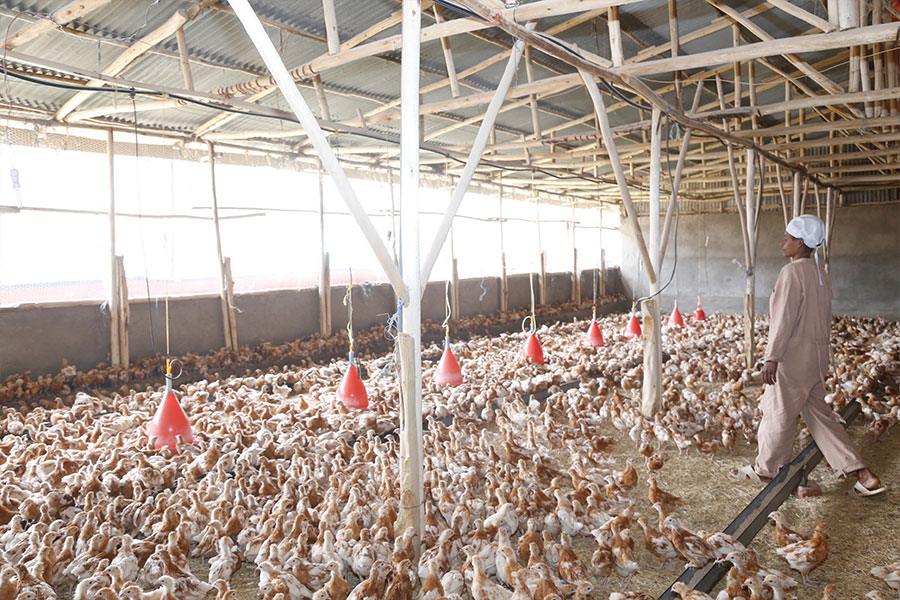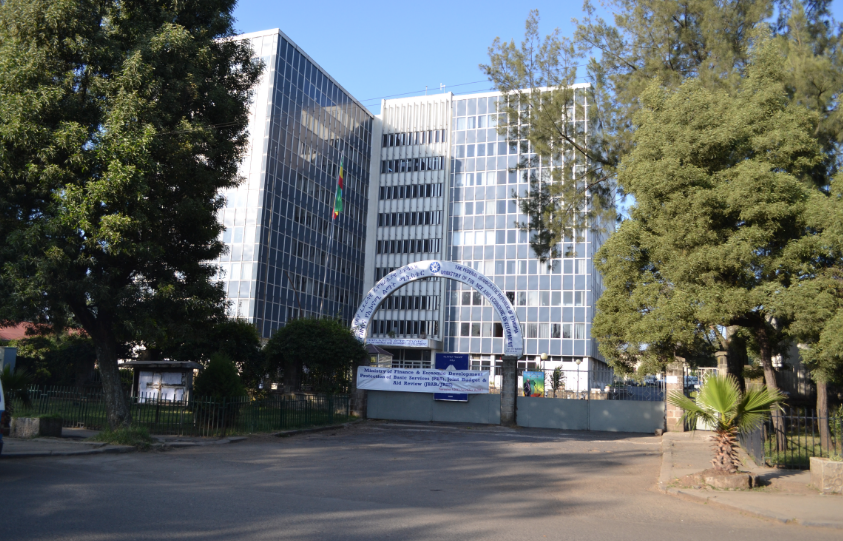
Radar | Aug 03,2019
Three years ago, Sewmehon Yismaw was approached by Habesha Breweries for the production of a television commercial.
The brewery wanted an advertisement that was historical and cultural with an “Ethiopian essence."
Sewmehon was director, cinematographer as well as co-founder of the decade-old Sabisa Film Production that he still operates with his two friends.
The production company creates feature films, video clips and television advertisements that includes Tewodros Kassahun’s, a.k.a Teddy Afro, Tikur Sew music video.
“Although shooting took a week, the entire production for the commercial took two months to finish,” he says. “It was such a huge project for us, and we even held auditions for many of the roles.”
The ad’s production engaged around 400 actors, producers, costume designers, editors and graphic designers and cost a million Birr to make. Habesha was happy with the first result and ended up commissioning two more advertisements from Sabisa.
“Beer companies' willingness to invest in promotion and marketing has raised the bar for the advertising industry and sparked creativity,” says Sewmehon, regarding the current slew of television advertisements by breweries.
It was not just the advertising industry that benefited, but events, concerts and holiday television programs joined the bandwagon.
After the law comes into effect, alcohol advertisement billboards that do not have a warning message on them will be removed as they become illegal.
But there is a new bill in the horizon that will put stringent restrictions on advertisement of alcoholic products. It has passed reviews by the Council of Ministers and is currently under deliberation in parliament.
Drafted jointly by the Food & Drug Authority and the Ministry of Health the bill sets a new regulatory framework for food, medicine, medical devices, cosmetics, alcoholic beverages and tobacco products.
The draft law, three years in the making, puts various restrictions and limitations on the advertisement as well as sale and use of alcoholic and tobacco products. The regulations span from production and importation to distribution and promotion of these products.
Some of the new precedents in the law have found praise from policymakers, especially regarding restrictions on the sale and use of tobacco products.
The draft proclamation states that tobacco products should have rotating warning messages to be displayed on no less than 70pc of the packaging and that cigarettes should only be sold in packages. It also prohibits selling tobacco products to underage people.
Another change much appreciated is the lifting of limits on the number of businesses that were allowed to import and distribute specific medical equipment and medicines from manufacturers.
But the bill's limitation on the distribution, use and advertising of alcoholic drinks has led to debates instead of outright condemnation or commendation.
Alcoholic drinks will be required to feature warnings on their labels that declares consuming alcohol is hazardous to health. Advertisement of alcoholic products will also contain a message that says it is illegal to sell it to a person under the age of 18.
“If the bill is passed, billboards and posters that don't have a warning label on them will be removed after it becomes effective,” says Dereje Shemlis, public health law adviser at the Authority.
The bill also proposes limiting advertisements of drinks with alcoholic contents under 10pc to between 11:00pm and 6:00am; and prohibits alcohol manufacturers from sponsoring holiday events or issuing lottery awards and prizes.
“An unregulated alcohol industry has resulted in unwarranted and unnecessary market competition that has put the health of the public at risk,” says Dereje. “We have also found a direct relationship between alcohol drinking and exposure to commercials of alcoholic products.”
Alcohol is consumed by 40pc of Ethiopia’s population, while 12pc engage in heavy drinking, according to a 2015 report by the Ethiopian Public Health Institute.
Producers of alcoholic drinks say they understand that problems exist but that the government is going about it the wrong way. They claim that it will impact an industry which they assert invests at least 300 million Br in Tv and radio alone.
While the state has shown the danger, it did not prove that its proposals would bring the desired results, says Dagmawi Shewangizawu, public affairs manager at Diego Ethiopia.
“Around 42pc of alcohol users in Ethiopia consume traditional alcoholic beverages such as Tela,Tejand Areqe,” said Dagmawi. “We also doubt that television ads are contributing to the prevalence of alcohol use, since households with a television across the country are relatively few.”
The proposed law also raises the drinking age from 18 to 21, which will make drinking alcohol for close to 5.5 million additional people illegal.
“The notion that we would trust the youth to participate in political processes but consider them not mature enough to decide on beverages is ridiculous,” Dagmawi told Fortune. “The government should instead work with alcohol companies to bring the desired change through education and awareness creating programs.”
Not everyone is upset with the new draft law. Awash Wine, which has an 85pc share of the wine market, welcomes the proposal since it is aimed at protecting the public.
Awash does not rely on broadcast advertisements, according to Biruk Amante, public relations manager at Awash Wine.
Experts in the field warn that the proposed law would be consequential though.
For Beyene GbereTinsae, a lecturer at Addis Abeba University’s School of Business & Economics for 15 years, allowing a company to manufacture a product but denying its promotion is a violation of its economic rights.
“It impacts foreign direct investment as these actions show legal uncertainty on behalf of the government,” he says. “The proposals will also make it hard for new brands to crack the market if the promotion is no longer as viable an investment.”
Ethiopia, which has five local and international beer companies that produce 14.5 million hectolitres a year and 23 companies that manufacture liquor, is not the first to bring such proposals to the table.
Russia has banned broadcasting alcohol advertisements and even placed a limit on the hours of the day that it can be sold. France too introduced advertising restrictions in 1991 and has since managed to reduce alcohol consumption by 25pc.
“The breweries will continue to promote their products, but the medium will change,” he told Fortune. “It is the turn of social media.”
PUBLISHED ON
Feb 02,2019 [ VOL
19 , NO
979]

Radar | Aug 03,2019

Fortune News | Jul 02,2022

Fortune News | Jun 08,2019

Fortune News | Sep 22,2024

Radar | May 02,2020

Fortune News | Oct 12,2019

Radar | May 25,2019

Covid-19 | May 23,2020

Commentaries | Jun 04,2022

Radar | Mar 09,2019

Dec 22 , 2024 . By TIZITA SHEWAFERAW
Charged with transforming colossal state-owned enterprises into modern and competitiv...

Aug 18 , 2024 . By AKSAH ITALO
Although predictable Yonas Zerihun's job in the ride-hailing service is not immune to...

Jul 28 , 2024 . By TIZITA SHEWAFERAW
Unhabitual, perhaps too many, Samuel Gebreyohannes, 38, used to occasionally enjoy a couple of beers at breakfast. However, he recently swit...

Jul 13 , 2024 . By AKSAH ITALO
Investors who rely on tractors, trucks, and field vehicles for commuting, transporting commodities, and f...

Oct 18 , 2025
The political establishment, notably the ruling party and its top brass, has become p...

Oct 11 , 2025
Ladislas Farago, a roving Associated Press (AP) correspondent, arrived in Ethiopia in...

Oct 4 , 2025
Eyob Tekalegn (PhD) had been in the Governor's chair for only weeks when, on Septembe...

Sep 27 , 2025
Four years into an experiment with “shock therapy” in education, the national moo...